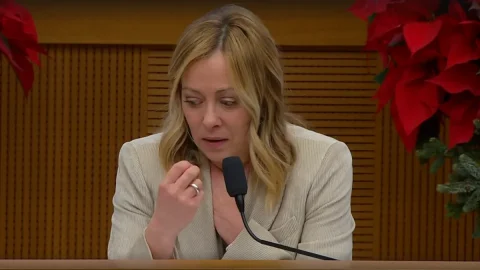Consumption away from home, in Italy and abroad, of Italian wine is collapsing due to the closure of restaurants, bars and wine bars caused by the pandemic. About 200 million liters of wine more than last year lie unsold in Italian wineries with serious difficulties for the Italian wine sector, especially the one linked to wines with designations of origin and geographical indications, with higher added value.
The consequence of the containment measures adopted to deal with the Covid emergency is in fact the presence in the cellar at 31 March 2021 of 5,6 billion liters of wine according to an analysis carried out on the latest update made available by the Ministry of Agriculture.
These are high quality productions in a country like Italy which is the world leader ahead of France with the tricolor production is destined for about 70% to Docg, Doc and Igt wines with 332 wines with controlled denomination of origin (Doc) , 73 wines with denomination of controlled and guaranteed origin (Docg), and 118 wines with typical geographical indication (IGT) recognized in Italy and the remaining 30% for table wines.
At stake - warns Coldiretti - there is the future of the first Made in Italy agri-food export sector which develops a turnover of 11 billion euros and generates job opportunities for 1,3 million people engaged directly in fields, cellars and in commercial distribution, but also in connected and service activities and related industries that have extended into the most diverse fields: from the glass industry to that of stoppers, from transport to bioenergy, from that of accessories , such as corkscrews, from nurseries to packaging, from wine tourism to cosmetics to the wellness market.
But it is not only the wine sector that is experiencing a moment of great concern. In fact, unsold food and wines since the beginning of the pandemic have risen to 1,1 million tons due to the collapse of the activities of bars, trattorias, restaurants, pizzerias and agritourisms.
It is estimated that 330 thousand tons of beef, 270 thousand tons of fish and seafood and about 220 million bottles of wine have never arrived in the last year on the tables of the premises forced to an exhausting stop and go without the possibility of planning purchases even for highly perishable products.
Forced closures, limitations on opening hours, bans on travel, drastic drop in tourist presences and the widespread diffusion of smart working - underlines Coldiretti - have devastated the budgets of catering services and dramatically cut employment levels but the consequences are also hear directly about the suppliers.
The objective difficulties of sales, consumption and distribution are then joined by the damage caused by the fake made in Italy in the world that fills the pockets of counterfeiters of trade to depress those of Italian farmers and sellers.
The latest news in chronological order, however, is fortunately positive for us and concerns the stop at false chianti decided since EU Court which banned the use of the Rooster symbol for wines other than Chianti thwarted yet another attempt to misappropriate historical national brands whose prestige was built on the work of entire generations. Very important decision in a situation where on the global market imitations of Made in Italy agri-food products exceeded the value of 100 billion in the year of Covid.
The claim to use the same symbols for very different products is unacceptable for Coldiretti and represents a deception for consumers and an unfair competition against entrepreneurs. In fact, around the world it is estimated that more than two out of three Made in Italy agri-food products are fakes without any production or employment link with our country. Above all, the emerging or richer countries from China to Australia, from South America to the United States are counterfeiting Italian food, but sensational examples are found in Europe where the sale of wine kits with a soluble powder preparation is widespread which, according to what is declared on the packaging, would allow the most famous Italian wines to be reproduced, such as Brunello or Barolo.
In addition to wine, among the most fake agri-food products there are cheeses, cured meats and preserves. From the fight against imitations of fake Made in Italy to tables around the world 300 jobs can be created in Italy.





